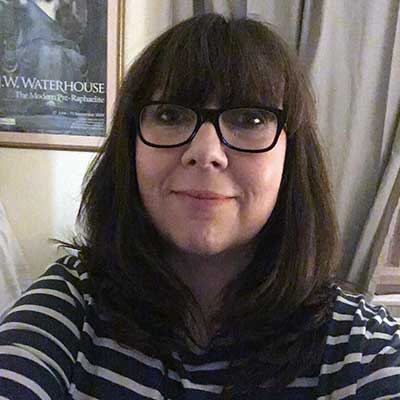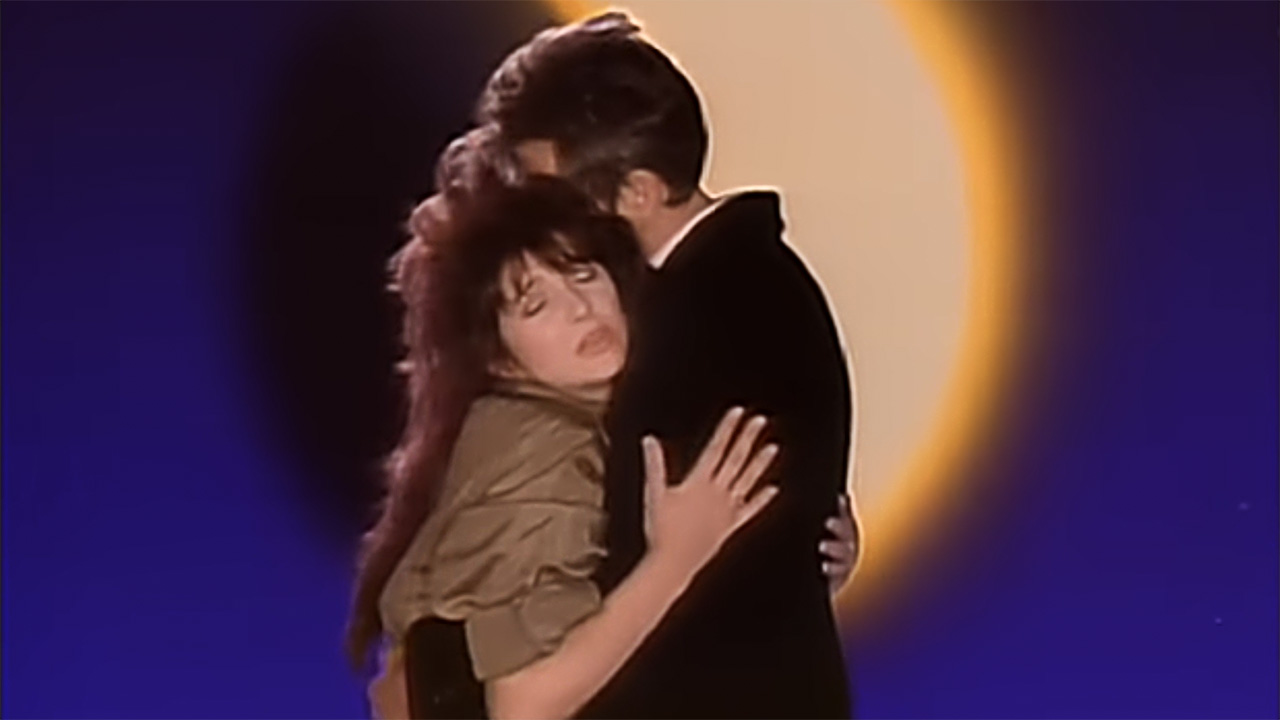First look: Public Service Broadcasting Live in Space!
“We're going all-out Spinal Tap!” say PSB as they gear up for their ambitious The Race For Space April tour.
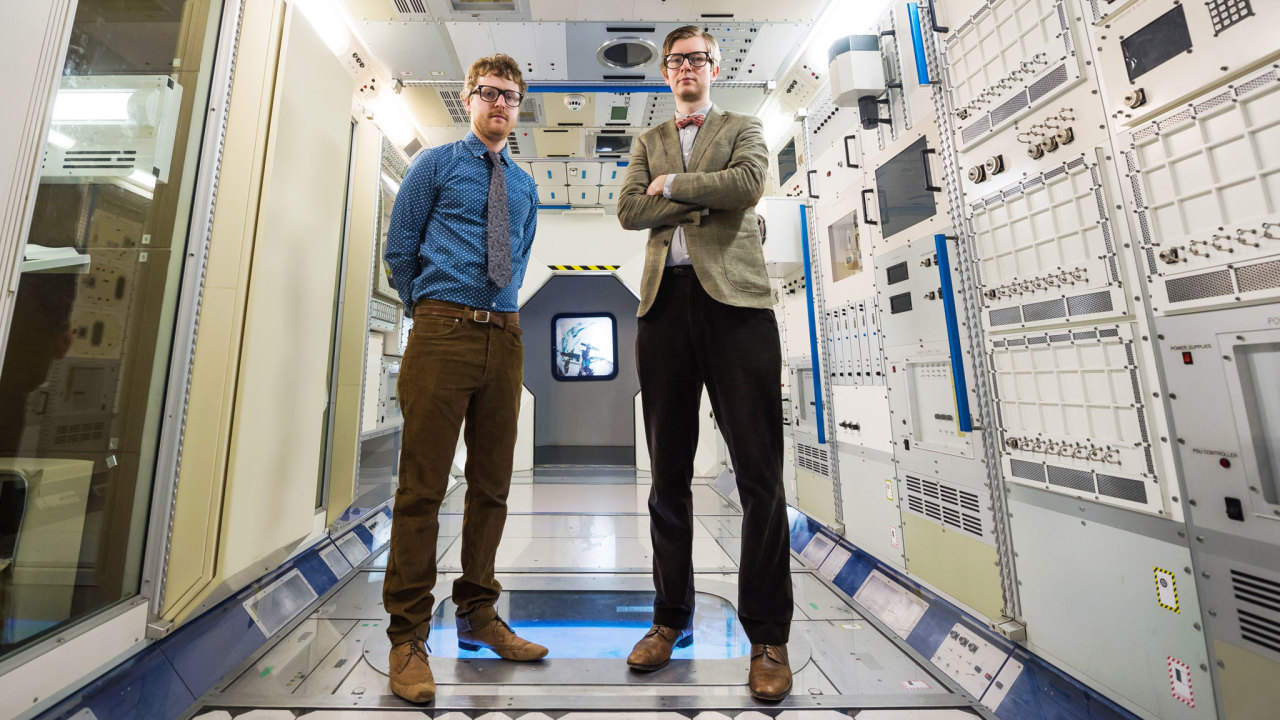
Select the newsletters you’d like to receive. Then, add your email to sign up.
You are now subscribed
Your newsletter sign-up was successful
Want to add more newsletters?

Every Friday
Louder
Louder’s weekly newsletter is jam-packed with the team’s personal highlights from the last seven days, including features, breaking news, reviews and tons of juicy exclusives from the world of alternative music.

Every Friday
Classic Rock
The Classic Rock newsletter is an essential read for the discerning rock fan. Every week we bring you the news, reviews and the very best features and interviews from our extensive archive. Written by rock fans for rock fans.

Every Friday
Metal Hammer
For the last four decades Metal Hammer has been the world’s greatest metal magazine. Created by metalheads for metalheads, ‘Hammer takes you behind the scenes, closer to the action, and nearer to the bands that you love the most.

Every Friday
Prog
The Prog newsletter brings you the very best of Prog Magazine and our website, every Friday. We'll deliver you the very latest news from the Prog universe, informative features and archive material from Prog’s impressive vault.
Last week, we saw the newly-cosmic Brits launch their Top 20 album The Race For Space at the National Space Centre in Leicester. With a four-piece band augmented by brass, props, a huge lightshow and vintage film clips it took the ethic behind their RAF Museum shows of May 2014 to infinity and beyond - and they even made their own space suits. We took a load of pix and got a quick chat in with chief Broadcasters J Willgoose Esq and Wrigglesworth.
Why choose the Space Centre?
Wrigglesworth (drums): Because it’s fun!
J Willgoose Esq (guitar, synths, banjo, programming): “I hadn’t actually been here before, but I passed the sign on the motorway many, many times in the past on the way from London to uni in Nottingham. It piqued my interest and when we decided to do an album about space it suggested itself fairly obviously. The people here are really great to deal with, just so accommodating.
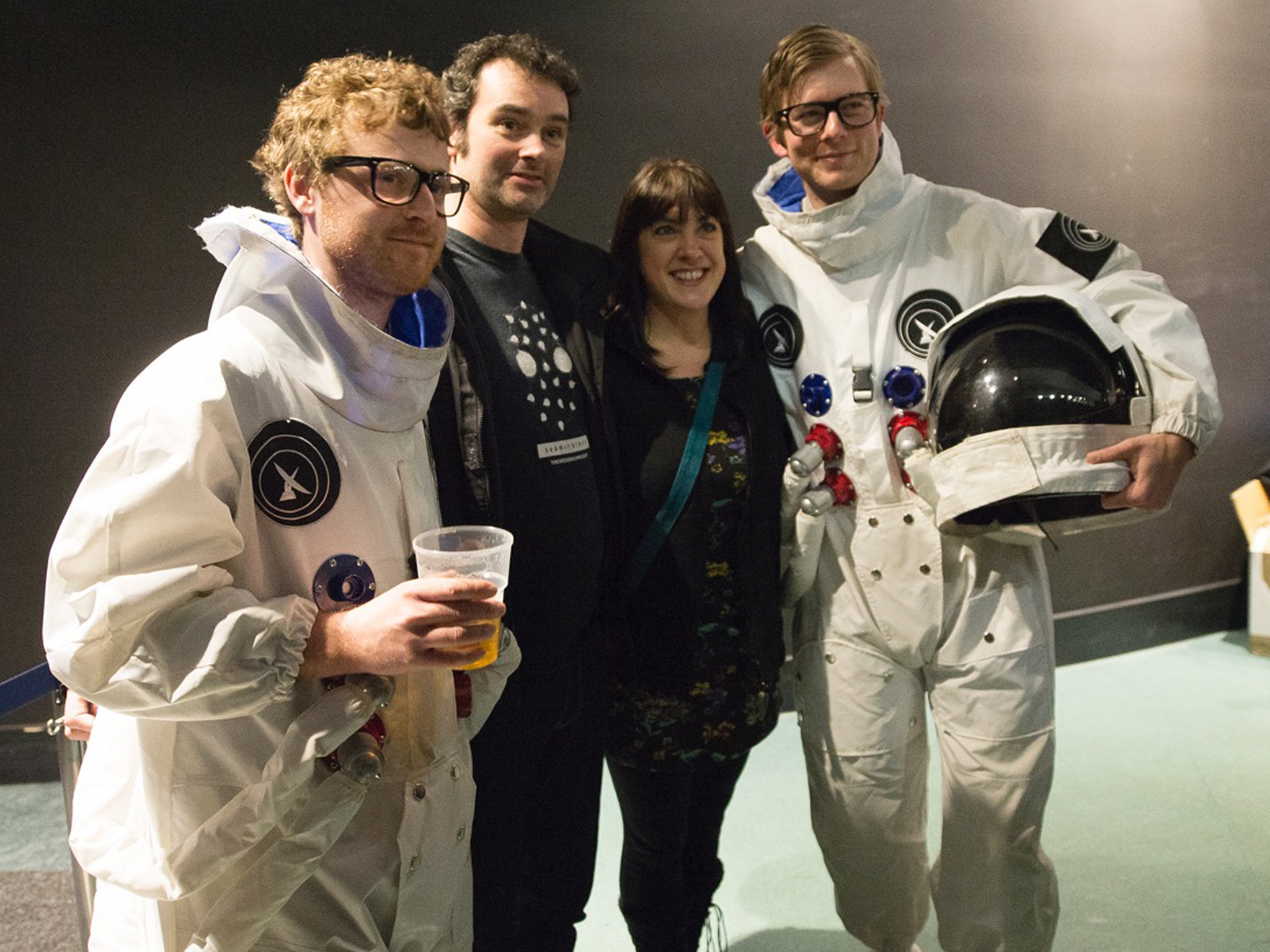
Concept albums still aren’t dead.
J: Yes, there’s still a lot around. I wrote something for online about this recently and in the process realised there’s actually been a lot in last few years. PJ Harvey even won a Mercury prize with one about three years ago.
Concept albums don’t have to be proggy or just about space… but this is.
Sign up below to get the latest from Prog, plus exclusive special offers, direct to your inbox!
J (laughing): This is about space, yes! I don’t know how proggy it is. I can’t play well enough to be in a prog band. (Too modest – Ed)
Your crowd seem to be slightly more mature appreciators, not young kids. Are you aware this is your audience and is the music you make deliberately geared to them?
J: If you’re approaching anything like a hard-headed businessman you wouldn’t say a money-spinner was niche, spoken-word-slightly-melodic-mostly-instrumental nonsense would you? That crowd had found us cos most of our radio play has been through BBC 6Music.
Your image is very evocative of a certain style, a certain time.
J: It is, but we get kids as young as five or six going crazy for it…
W: …Cos they like planes.
J: We can slot into daytime festival bills, or late night stuff like bonkers German festivals at half four in the morning. It still works across all ages. For people who lived through the periods we’re covering first-hand, it may be personally a bit more stirring. I find it very stirring to write about, though, and I wasn’t alive when it happened.
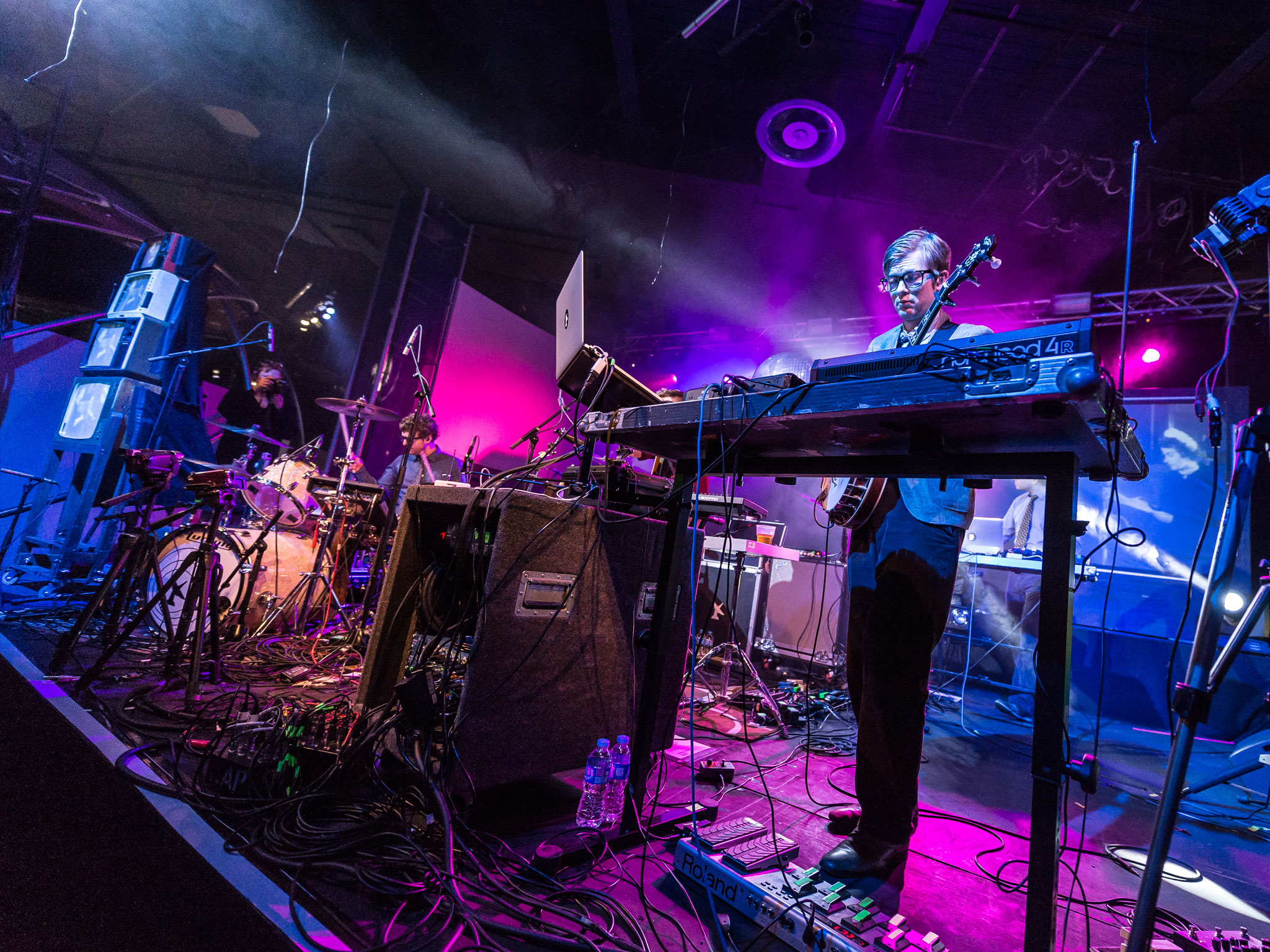
How did the launch night for The Race For Space go?
W: Well, I went in the Planetarium [opposite the stage] for the pre-gig film showing, and it was good. But I nearly missed the start of our gig, though (laughs).
At the time, just one picture went up on Twitter.
J: We didn’t want to retweet too many as we wanted to keep our surprise a surprise for people coming tonight ,which is a Sputnik replica. It’s a thing that we built – well, Mr B, our visuals and set designer built.
W: I think he’s clinically insane.
J (turning to W): No, we’re not allowed to do it as a diagnosis, remember?
W: Okay, he’s insanely talented then.
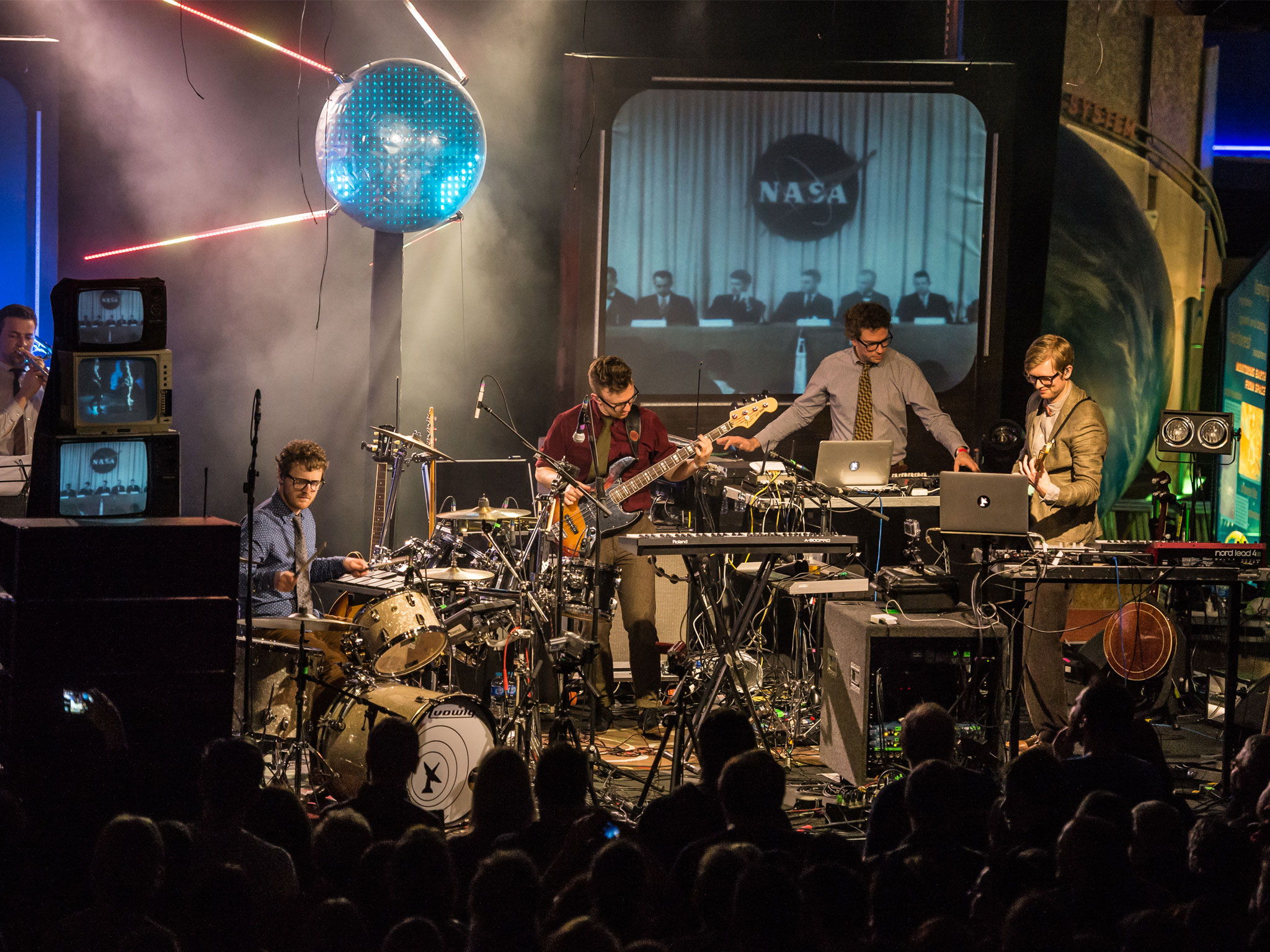
J (laughs): So we were a bit on edge last night as there was some new stuff thrown into the set and we haven’t done a lot of it that off and we made a lot of mistakes. I always make a lot of mistakes…
But that’s the beauty of a live show, it’s not like just playing the record.
J: I agree. There’s got to be the potential for it to go wrong to be live.
W: And there’s so much that could go wrong!
What’s the worst thing that’s ever happened to you onstage?
W: In Italy, the entire gig just crashed. It went ‘Eeeeeeeeee!’ for ages. Luckily it was the last song. We could have got away with it being a challenging new work, perhaps.
So what’s in your production?
J: We’ve got the brass with us. We’re reliant on a bit of backing track, sadly, and where budget would permit we’d do it all live and where space would permit, ironically. There’s not that many places to put a big stage in here. There are four of us crammed on stage with all kinds of instruments – one and a half drumkits, all sorts of electronic bits and bobs and Mr B’s visuals. Then there’s the vintage TVs, the Sputnick that rises out of the floor and hopefully lights up, bells and whistles stuff, and takes too long to go down at the end of the set!
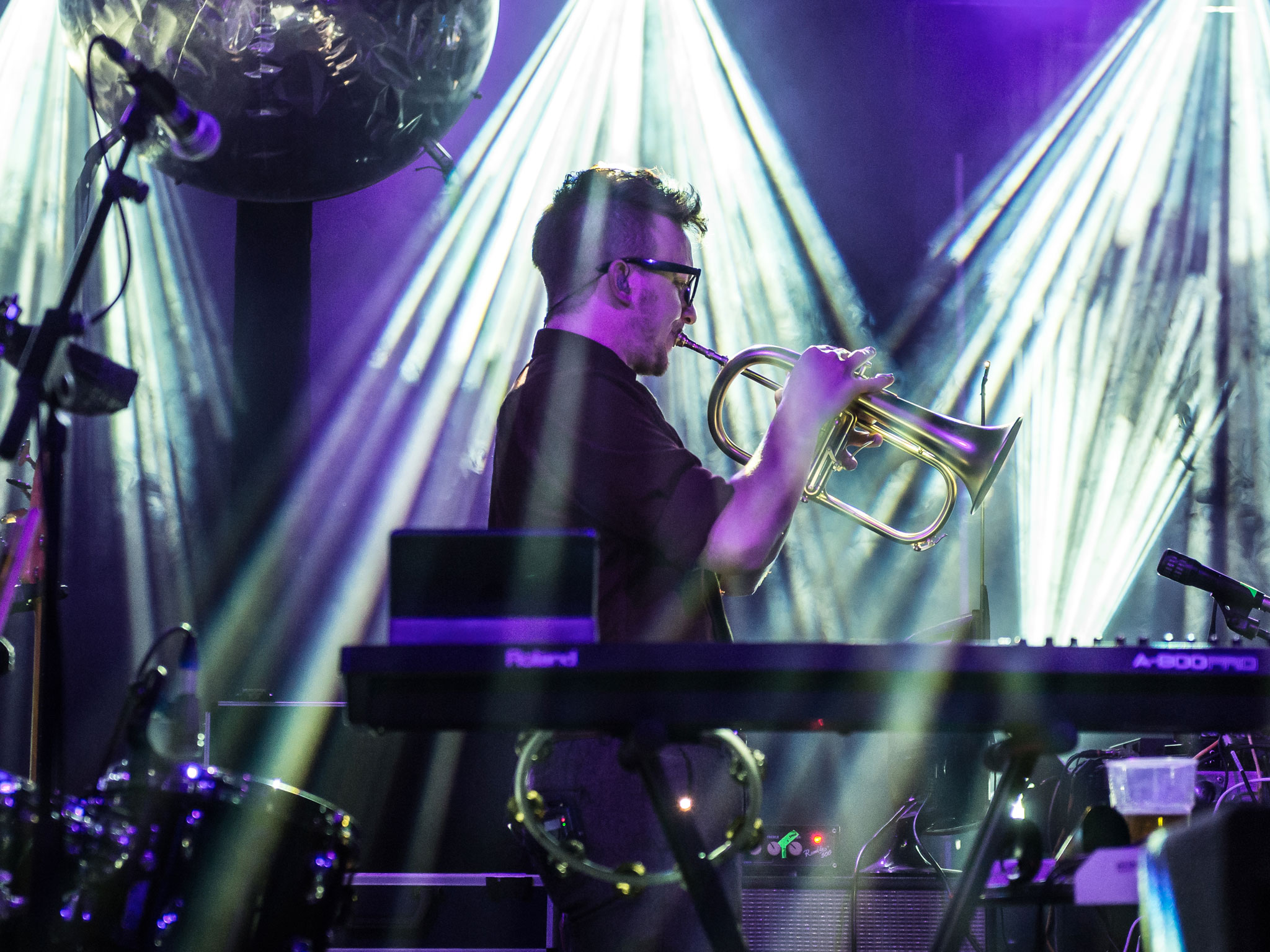
Very Spinal Tap!
J: We’re going all-out Spinal Tap! There was a picture tweeted last night under the quote ‘great surreal gig last night’ and there was us four playing away, the TVs in the front, Sputnick flashing away, this giant disco ball with four prongs coming off it, and our tour manager dressed as an astronaut dancing on a podium. It was one of the best photos I’ve ever seen!
So this is all going on tour in April?
J: Yes, and we’ll take ‘Sputters’ out with us. There might be some stages that are too small for him though. We built it bigger that the real thing, which might be a mistake. The real thing was only 50 centimetres diameter. I think we doubled that.
It’s got to be visible.
J: Oh, you can see it. So it is tourable, but of you start making the production big it starts to go into the realm of venues where people can’t have that up-close and personal experience, so it’s finding that balance. This isn’t cheap.
Yeah, who’s paying for it?
J: We are. Well, the people who are coming to see us are also paying for it, but I’m not shy about saying we’re losing money on these gigs. These Space Centre shows aren’t to top up our retirement fund or anything. It’s not a regular Dog and Duck show.
But you’re not a regular Dog and Duck band, you want to do something different.
J: But we have been. We came through playing the old fashioned way, which I find quite satisfying. I think we’re at a level where people can still get that intimate feel but also look to doing more bonkers and stupid things.
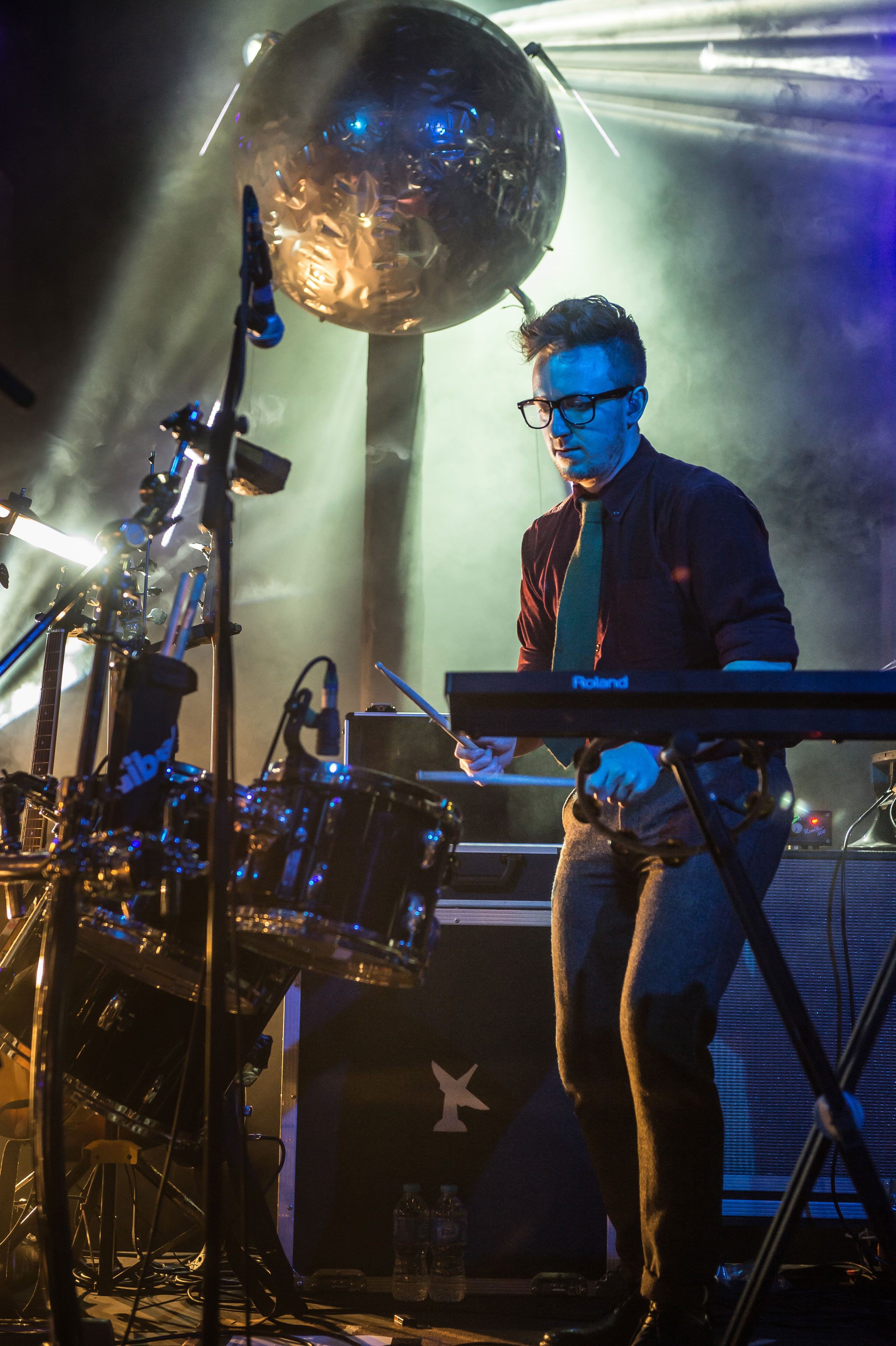
When you wrote The Race For Space what other space-themed music inspired you?
J: Not too much, I tried to keep away from the tropes that had gone before. Bowie’s Low is in there and Eno is there by proxy rather than by his ambient themes. I didn’t want it to be too clichéd. We did get a choir involved, that came from Kubrick and the music for 2001. Then there’s Michael Jackson, Doobie Brothers, Meters, lots of old funk, but with our own take on it.
What era do you come from space-wise?
J: The first thing that made an impression on me was the film Space Camp, and I think I remember – but I might have been too young – The Challenger disaster, sadly. One year we went to Cape Kennedy and I came away with a lunar screen hat.
That’s where you get the space ice cream, the freeze-dried stuff.
W: I love that stuff!
Have you eaten it?
W: Yeah!
But did you rehydrate it, or just suck it?
W: I just ate it. It’s nice. It comes in a silver foil packet, an easy snack to carry around.
What about your space era?
W: We went to Cape Kennedy when I was about seven, it was fun. But the next day it was Universal Studios so it was promptly forgotten about. The King Kong ride was very, very good, so maybe that should be the next album. [Looks at J] Then we can get our tour manager to dress as a gorilla, and we can play the Empire State Building. That’s that sorted then!
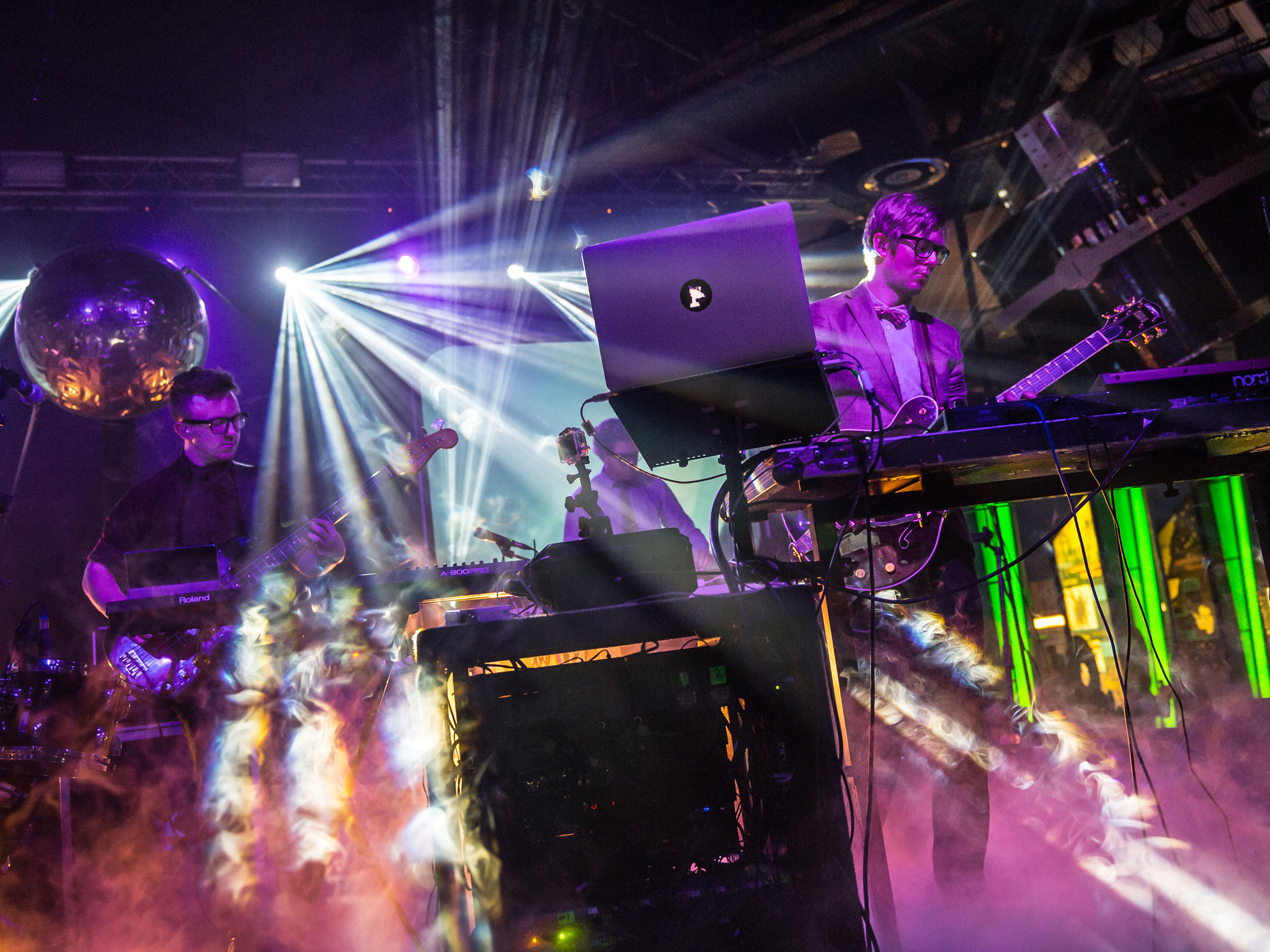
A full review of the Space Centre show will run in Prog 55. The Race For Space is out now via Test Card Recordings. The album tour starts April 22 in Brighton. Find out more at publicservicebroadcasting.net.
Jo is a journalist, podcaster, event host and music industry lecturer who joined Kerrang! in 1999 and then the dark side – Prog – a decade later as Deputy Editor. Jo's had tea with Robert Fripp, touched Ian Anderson's favourite flute (!) and asked Suzi Quatro what one wears under a leather catsuit. Jo is now Associate Editor of Prog, and a regular contributor to Classic Rock. She continues to spread the experimental and psychedelic music-based word amid unsuspecting students at BIMM Institute London and can be occasionally heard polluting the BBC Radio airwaves as a pop and rock pundit. Steven Wilson still owes her £3, which he borrowed to pay for parking before a King Crimson show in Aylesbury.
